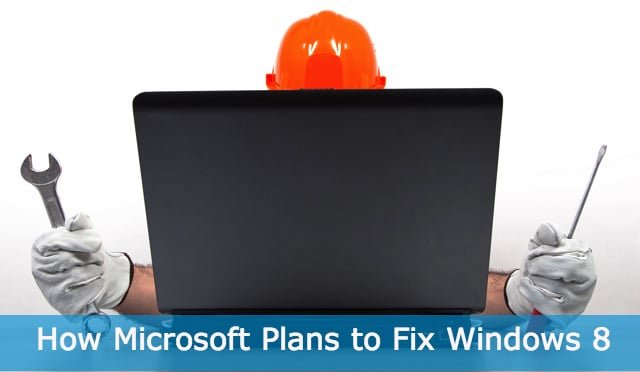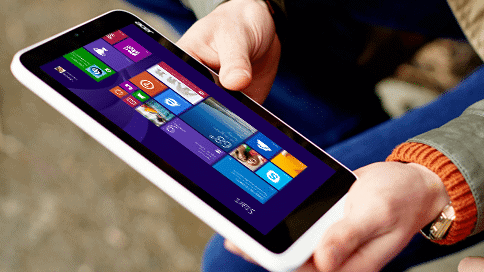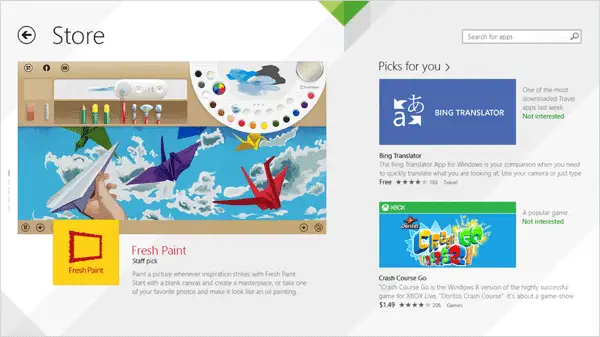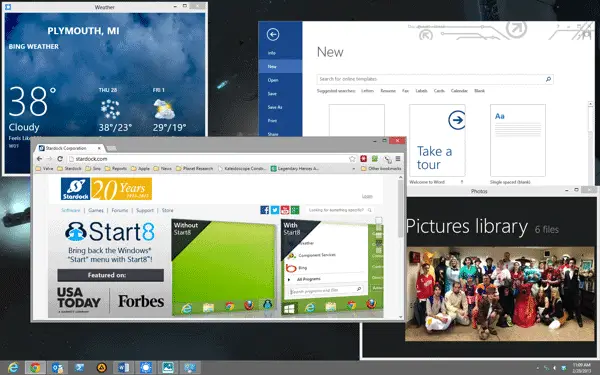
Some fascinating rumors recently hit the press, courtesy of The Verge. The rumors say Microsoft plans to release Windows 9 in April of 2015. The system will include the usual performance improvements, as well as a possible return of the Start menu.
The most interesting rumor was that the company will introduce Metro 2.0, the second version of its much-criticized interface from Windows 8. “Previous rumors have suggested Microsoft is planning to separate out its Windows 8-style (‘Metro’) apps to allow them to float and run in separate windows on the traditional desktop.”
This instantly caught my attention. Unlike some rumors, this one makes sense. It’s probably even true. Here’s why.
Two Birds
Microsoft faces two major problems (among others) with Windows 8 that could be resolved by implementing this idea.

One, the Windows Store needs more Metro-style desktop apps for Windows 8. Developers have largely ignored Redmond’s official store.
An article from October 2013 reported that the Windows Store lacked 75% of the most popular apps, all of which were available on Android and iOS.
Microsoft needs more apps in its store to better compete with its rivals and push its own store from which it takes a hefty cut of the profits.
Two, desktop users prefer the traditional desktop interface to the new Metro setup. It allows more than two windows on the screen simultaneously and doesn’t require learning a new interface.
In deference to its users, Microsoft left support for legacy Windows apps within the desktop mode. However, what would happen if the company let you run Metro apps on the desktop?
One Stone
Consider this. We can guess with good certainty that Microsoft envisions a certain future for Windows that looks a lot like iOS.

Every app goes through the Windows Store. No more messing around with updates, installers, and that crap. Microsoft can gather everybody under one roof and provide a consistent user experience across all platforms.
Plus, it gets that 30% cut of all app sales.
However, that’ll never happen if Redmond leaves Microsoft as it is. Desktop users stick to legacy apps. Metro apps are an afterthought.
However, what would happen if Microsoft allowed running Metro apps on the desktop?
Suddenly, Metro apps don’t seem that bad. If you can juggle them along with all your other legacy apps, it doesn’t kill your workflow.

If Metro apps will run on the desktop (e.g. where the users are), then developers may feel more inclined to develop within the official Windows Store. That way they can make one app for desktop and Metro interfaces.
If Microsoft can whip the Windows Store into better shape, it can push Windows RT and tablets as a viable alternative to Android and iOS.
If Microsoft can do all that, then maybe Windows 8 and Metro won’t be such a mistake after all. If it can do all that.
No Points
Which brings us to the next point, which worries me. Sheer inertia will likely push a significant number of developers away from the Windows Store. Why bother remaking your app for less money?
So how will Microsoft motivate people to get their apps on the store? It tried giving developers more profits, and that failed.
What’s next? Stop supporting non-Metro desktop apps? The users would rebel. Pay Metro app developers?
Final Thoughts
Windows 9 raises more questions. Where will Microsoft go with this? We await news religiously, as decisions of the world’s most popular desktop OS affect us all.








